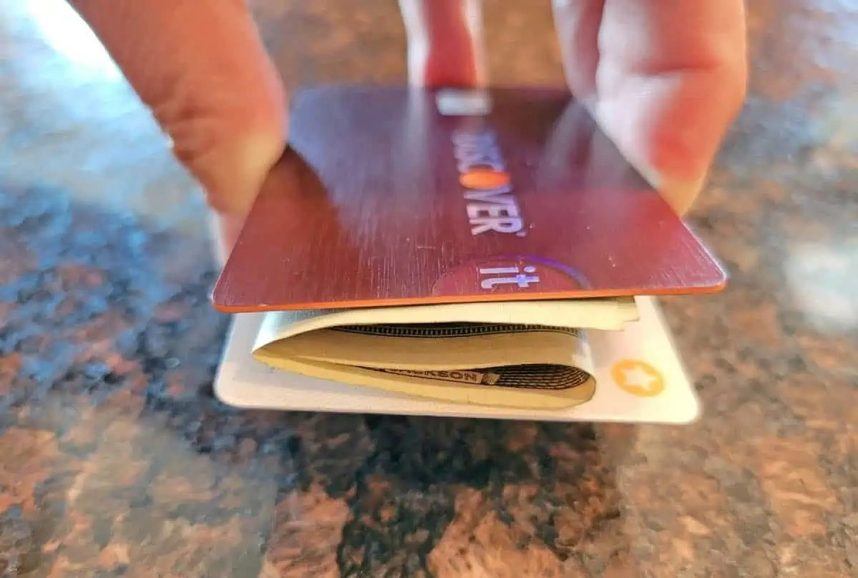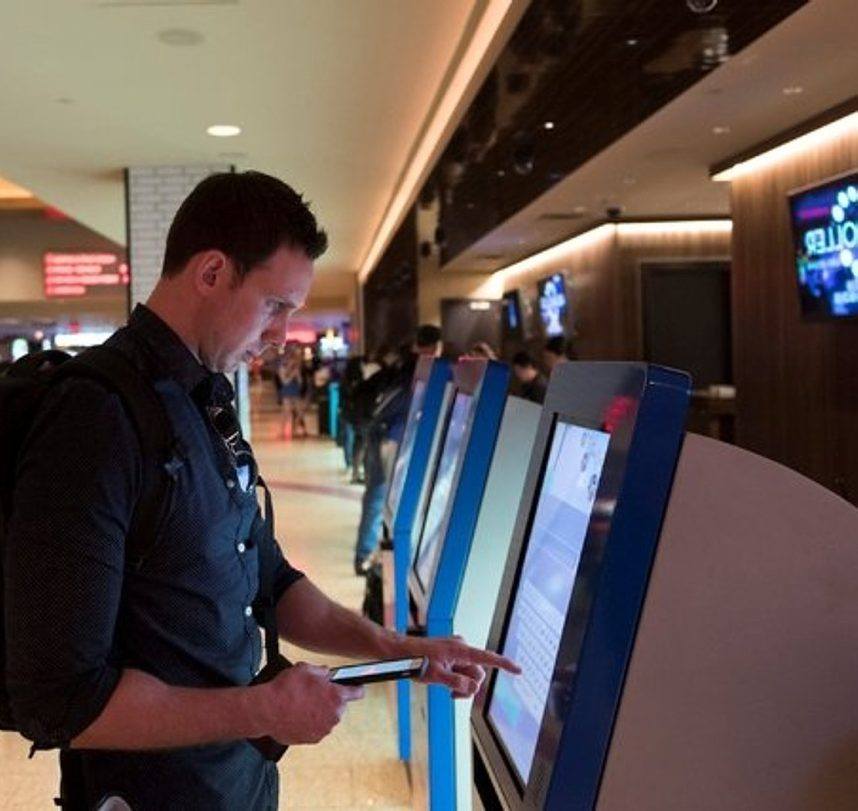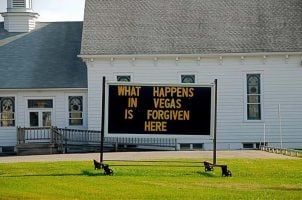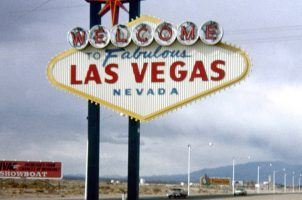VEGAS MYTHS RE-BUSTED: The $20 Room Upgrade Trick
Posted on: May 17, 2024, 07:08h.
Last updated on: May 17, 2024, 08:54h.
EDITOR’S NOTE: “Vegas Myths Busted” publishes every Monday, with a bonus Flashback Friday edition. Today’s entry in our ongoing series originally ran on Nov. 27, 2023.
Flashing a crisp Andrew Jackson to the front desk clerk at the Riviera might have worked for your dad in 1995, but it probably won’t get you a room upgrade in 2023 Las Vegas.

Oh wait, but your best friend told you it worked for him just last week? That’s only how he may have perceived the situation.
When guests ask if there’s an upgrade available, there are three possible answers a front-desk agent can give:
- I’m sorry, but we’re all booked up.
- Yes, and it will only cost $X extra per night.
- Yes, and we can offer that at no extra charge.
Walking up to the long shiny desk with a $20 bill out, as your dad did in 1995, or even handing it over neatly folded between the credit card and ID you are required to show — known as “the $20 sandwich” — will seldom result in the coveted answer No. 3.
Why it Probably Won’t Work
That’s because, in 2023 Las Vegas, every front-desk transaction is recorded on video. And, though the rules differ from hotel to hotel, it’s generally frowned upon for front-desk agents to distribute perks according to which guests bribe them.

However, suppose you are fortunate enough to get answer No. 3, then you liberate Mr. Jackson from your wallet after your room upgrade is promised. In that case, that would be considered a perfectly acceptable tip for the clerk to accept.
It also means that the $20 trick didn’t really work since you were free to be a jerk and stiff the agent and still get the upgrade.
“You aren’t paying for an upgrade, you’re thanking the front desk clerk for helping make the most of your visit,” explains Scott Roeben, founder of Casino.org’s own Vital Vegas blog. “The reality is that a clerk will help if they can — usually based upon directives from higher-ups — gratuity or not.
“The service will still be provided because Vegas is a service town.”
When the $20 Trick Might Still Work
Front-desk agents might accept a flashed $20 if they have low risk aversion or don’t aspire to a career in hospitality. The trick can also still work if the hotel generally looks the other way and/or never monitors the employee videos unless something patently illegal occurs.
But there is no accurate way to know this information in advance.
However, according to Roeben, it’s now the $40 trick anyway “because $40 is the new $20, just as $5 is the new $1 for comped drinks.”
Why It Won’t Work Much Longer

About 75% of hotels now offer self-check-in kiosks, according to the automation trade publication Kiosk Marketplace. Much like airline and rental-car kiosks, guests can use their ID to pull up their reservations. After they pay with a credit or debit card, the kiosk spits out their room key.
What can’t be accomplished at a kiosk is the $20/$40 trick. The machine will offer paid upgrades or, if enough higher-priced rooms are vacant and the customer has surpassed a predetermined threshold of loyalty points, offer one for free.
When faced with the alternative of a 45-minute line to speak to an agent who also may or may not grant a free upgrade, kiosks have become the preferred check-in choice, especially for young (read: future) Vegas visitors.
What to Expect Next
This trend will likely continue until kiosks replace the job of front-desk agents entirely. Most likely, a single employee will be left, who — much like at the supermarket self-check-out line — staffs the area only to solve customer problems with the machines.
Vegas resorts, like all public corporations that must answer to stockholders, are happy whenever they can remove humans from their books. Humans, with their pesky demands for a livable wage, medical insurance, paid vacations, lunches, and other work breaks, are their second-biggest operating cost.
Their biggest is the monthly lease payments most Vegas resorts must pay their corporate property owners. And there’s no eliminating that cost.
Look for “Vegas Myths Busted” every Monday on Casino.org. To read previously busted Vegas myths, visit VegasMythsBusted.com. Got a suggestion for a Vegas myth that needs busting? Email corey@casino.org.
Related News Articles
VEGAS MYTHS RE-BUSTED: Las Vegas Strip is in the City of Las Vegas
VEGAS MYTHS RE-BUSTED: Howard Hughes Bought Silver Slipper Just to Dim its Sign
VEGAS MYTHS RE-BUSTED: Sin City Has the Most Churches Per Capita
VEGAS MYTHS BUSTED: The Las Vegas Strip’s Official Boundaries
Most Popular
Sphere Threat Prompts Dolan to End Oak View Agreement
MGM Springfield Casino Evacuated Following Weekend Blaze
This Pizza & Wings Costs $653 at Allegiant VIP Box in Vegas!
Atlantic City Casinos Experience Haunting October as Gaming Win Falls 8.5%
Most Commented
-
VEGAS MYTHS RE-BUSTED: Casinos Pump in Extra Oxygen
— November 15, 2024 — 4 Comments -
VEGAS MYTHS RE-BUSTED: The Final Resting Place of Whiskey Pete
— October 25, 2024 — 3 Comments -
Chukchansi Gold Casino Hit with Protests Against Disenrollment
— October 21, 2024 — 3 Comments
















Last Comment ( 1 )
Thank you for not letting me look like a fool it's been 25 years since I last visited Vegas